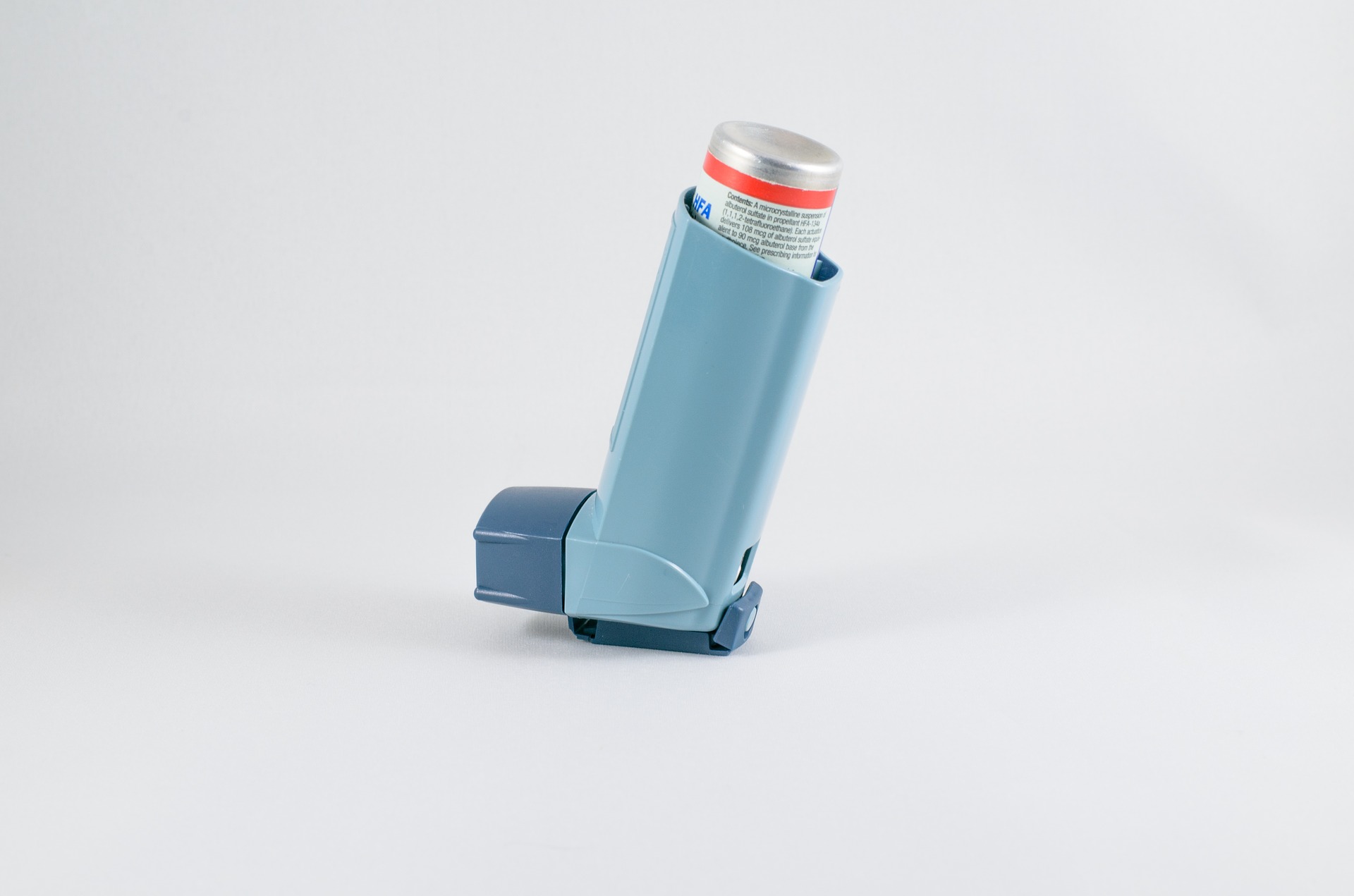Asthma
According To WHO, A medical Condition is characterized by recurrent attacks of breathlessness and wheezing, which vary in severity and frequency from person to person. In an individual, they may occur from hour to hour and day to day.
If you or a loved one has an asthma attack, you must understand the most effective asthma treatments for short-run relief and long-term management. Understanding asthma treatments can modify you to work with your asthma doctor to manage your asthma symptoms daily confidently. When you have Asthma or asthma symptoms, it is essential to understand when to call your doctor to stop an asthma emergency.
Drugs Used In Asthma
There are two types of drugs used in asthma, Short Relief And Long Term Asthma Control Medications. Long-term control medications reduce the inflammation in your airways that leads to symptoms. Quick-relief inhalers Or Short Term Medications (bronchodilators) quickly open swollen airways that are limiting breathing. In some cases, allergy medications are necessary.
Short Term medications
Short Term medications are used as required for speedy, short-term symptom relief during asthma or before exercise if your doctor recommends it. types of quick-relief drugs include:
Short-acting beta-agonists. These inhaled, quick-relief bronchodilators act within minutes to quickly ease symptoms throughout an asthma attack. They embrace albuterol (ProAir HFA, Ventolin HFA, others) and levalbuterol (Xopenex).
Short-acting beta-agonists will be taken using a portable, hand-held inhaler or a nebulizer — a machine that converts asthma medications to a fine mist — so they will be inhaled through a mask or a mouthpiece
Oral and intravenous corticosteroids. These medications — that include prednisone and methylprednisolone — relieve airway inflammation caused by a severe asthma attack. They will cause serious side effects once used long term. Therefore they are used solely on a short-run basis to treat severe asthma symptoms.
Ipratropium Like other bronchodilators, ipratropium acts quickly to instantly relax your airways, creating it more comfortable to breathe. Ipratropium is generally used for emphysema and chronic bronchitis. However, it’s usually used to treat asthma attacks.
If you have got an asthma flare-up, a quick-relief inhaler will ease your symptoms quickly. However, if your long-term management medications are working correctly, you should not get to use your quick-relief inhaler very often.
Keep a record of how many puffs you employ each week. If you would like to use your quick-relief inhaler more typically than your doctor recommends, see your doctor. You most likely need to change your long-term management medication.
Allergy medications might facilitate if your asthma attack is triggered or worsened by allergies. These include:
Omalizumab (Xolair). This medication, given as an associate injection each 2 to four weeks, is specifically for those with allergies and severe asthma attacks. It acts by altering the immune system.
Allergy shots (immunotherapy). Over time, allergic reaction shots step by step reduce your immune system reaction to specific allergens. You usually receive shots once every week for a few months, then once a month, for an amount of 3 to 5 years.
Long-term asthma management medications:
Long-term asthma management medications, usually taken daily, are the cornerstone of bronchial asthma treatment. These medications keep asthma under control regularly and create it less possible you will have asthma. types of long-run management medications include:
Long-acting beta-agonists. These inhaled medications, which include salmeterol (Serevent) and formoterol (Foradil, Perforomist), open the airways.
Some research shows that they’ll increase the risk of a severe asthma attack, thus take them only in combination with an inhaled steroid. And since these medications will mask bronchial asthma deterioration, do not use them for an acute respiratory disorder.
Inhaled corticosteroids. These anti-inflammatory drug medications include fluticasone (Flonase, Flovent HFA), budesonide (Pulmicort Flexhaler, Rhinocort), flunisolide (Aerospan HFA), ciclesonide (Alvesco, Omnaris, Zetonna), beclomethasone (Qnasl, Qvar), mometasone (Asmanex), and fluticasone furoate (Arnuity Ellipta).
You may need to use these medications for many days to weeks before they reach their maximum benefit. Not like oral corticosteroids, these steroid medications have a comparatively low risk of side effects and are usually safe for long-run use.
Theophylline. Theophylline (Theo-24, elixophyllin, others) could be a daily pill that helps keep the airways open (bronchodilator) by relaxing the airways’ muscles. It is not used as usual now as in past years.
Leukotriene modifiers. These oral medications — together with montelukast (Singulair), zafirlukast (Accolate), and zileuton (Zyflo) — help relieve bronchial asthma symptoms for up to 24 hours.
In rare cases, these medications are linked to psychological reactions, such as agitation, aggression, hallucinations, depression, and suicidal thinking. Look for medical advice quickly for any unusual reaction.
Combination inhalers. These medications — like fluticasone-salmeterol (Advair Diskus), budesonide-formoterol (Symbicort), and formoterol-mometasone (Dulera) — contain a long-acting beta-agonist in conjunction with a steroid. As a result of these combination inhalers have long beta-agonists, they’ll increase your risk of getting a severe respiratory disorder.

